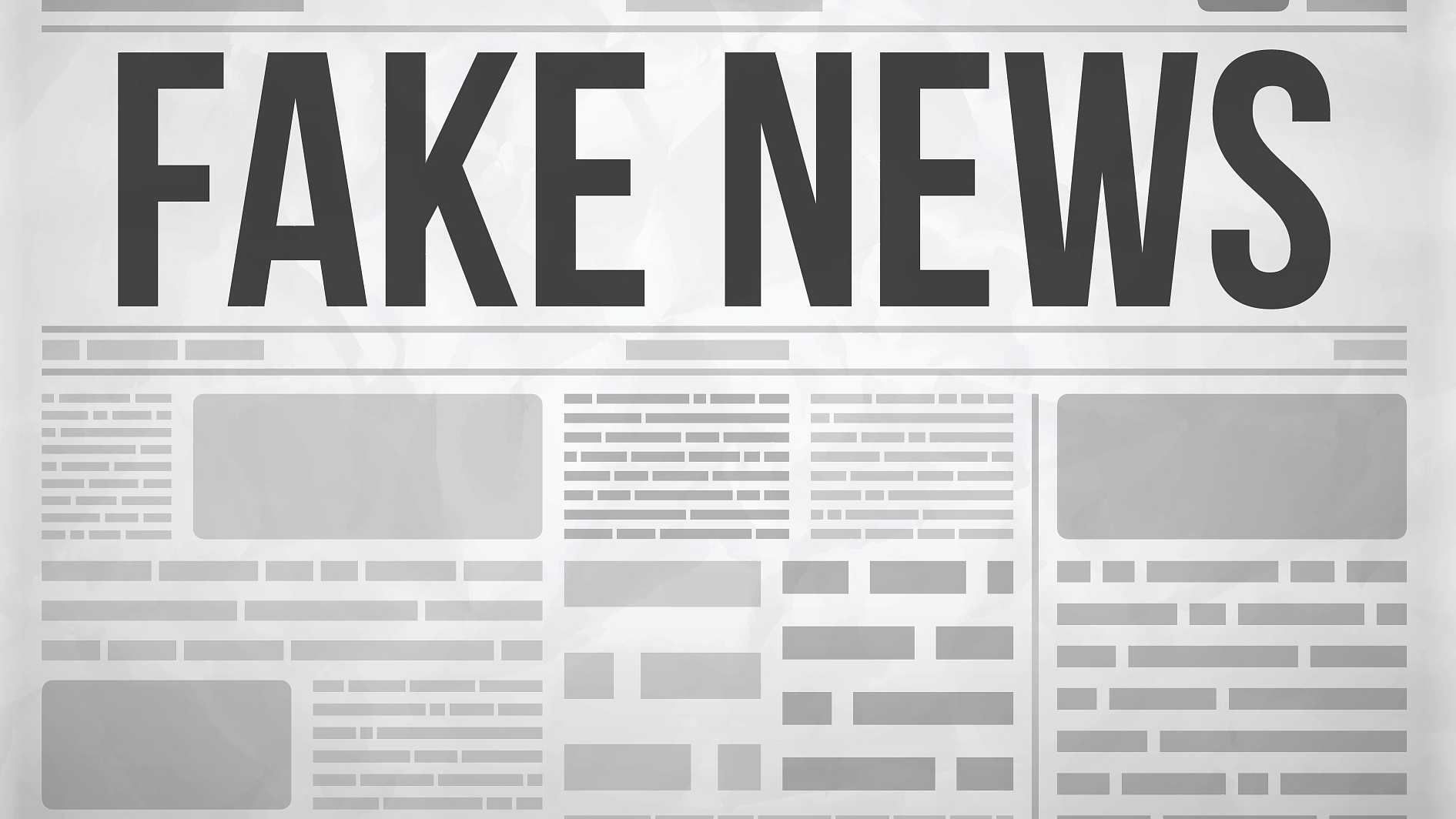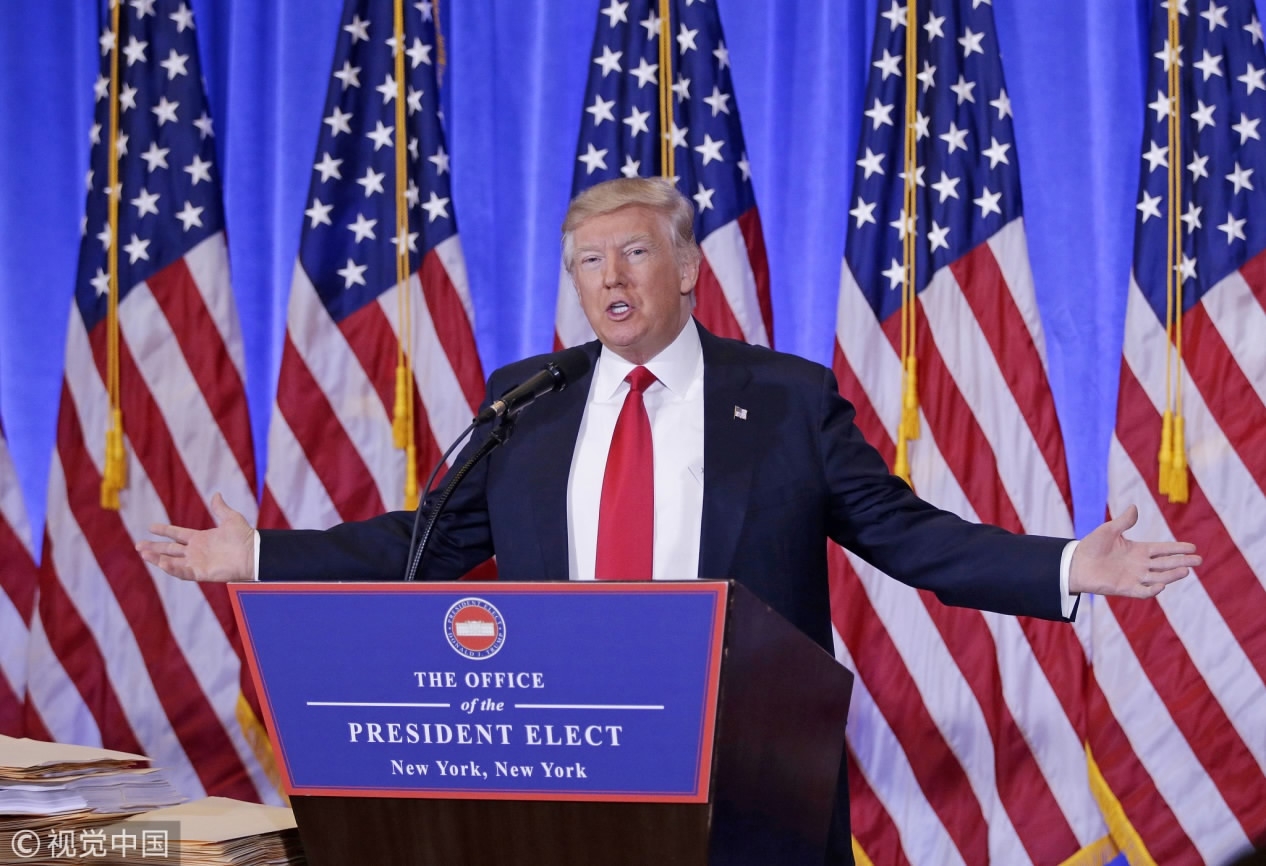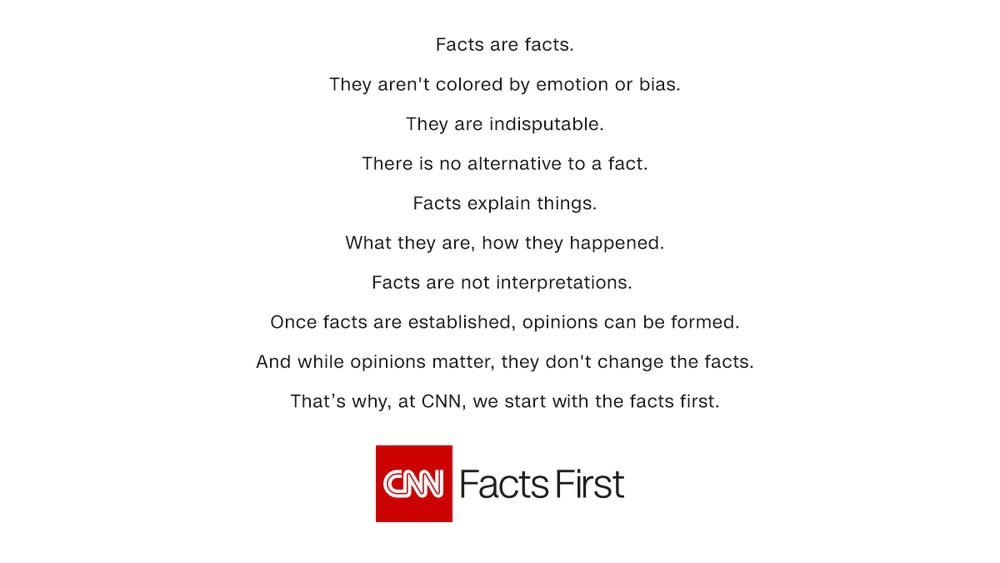
Opinions
21:17, 20-Jan-2018
Opinion: Fake News vs Partial Facts
Guest commentary by Dr. Summer

US President Trump once again made news Wednesday by issuing what he called the “Fake News Awards” bestowed on “the most corrupt and biased” reporters and media outlets in the US. This marks a new climax of Trump’s row against the press ever since he became the host of the White House last year.
A total of ten awards have been issued. CNN took the lead by receiving four rewards, New York Times followed by two rewards, while the ABC, the Washington Post, the Newsweek and the Times each got one.
The No. One prize named the “Highly Anticipated 2017 Fake News Awards” went to a column by New York Times opinion writer Paul Krugman, who wrongly predicted that the stock market would never recover after its fall in the wake of Trump’s election. The other prize-winning stories were chosen because of factual mistakes or errors.

Donald Trump speaks at a press conference at Trump Tower in New York City, January 11, 2017. /VCG Photo
Donald Trump speaks at a press conference at Trump Tower in New York City, January 11, 2017. /VCG Photo
The relations between Trump and the press had remained more or less balanced before he unexpectedly beat Hillary Clinton in the general election. As a matter of fact, Trump even made it clear in his bio book, The Art of the Deal, that there is “no such thing as bad publicity” because the press was useful for him to get media coverage in the old days. The concept also served him well in the Republican Party presidential primary when press attention was a relatively scarce resource amid a crowd of candidates.
However, the relations turned sore when Trump was preparing to take control of the Oval Office. All of a sudden, the president became the focus of media reports, mostly unflattering. He felt that the press acted pretty much like the opposition and even launched a war against him. Meanwhile, Trump’s repeated criticism of “fake news” from certain media organizations and his selective use of the press to relay his ideas to the public further worsened the situation. The continuous row between the president and the press prompted Trump to hand out the “Fake News Awards” based on “Dishonesty & Bad Reporting in various categories from the Fake News Media.”
Trump is not the only president troubled by the press. Richard Milhous Nixon was even forced to resign in 1974 due to media reports on the Watergate scandal. But Trump’s hostility toward the press has been unusual in its intensity, vulgarity and openness, he described the press as “pathetic,” “scum,” “disgusting,” “very dishonest,” “failing” and “the enemy of the American people.” In a few cases, Trump even threatened libel suits.

Screenshot from CNN
Screenshot from CNN
The press has responded with an attitude of righteous indignation. CNN, which was defined by Trump as “the most dishonest, corrupt and/or distorted in its political coverage of your favorite President (me),” quickly launched its “facts first” campaign, as an effort to “blunt Trump attacks” on the network, although some critics refer this as CNN’s branding strategy to gain market shares.
Nonetheless, as an outside observer of the developments, I tend to have a third stance on the issue. If you listen carefully to Trump’s criticism of the press, you’d notice that he is not happy with the “Fake News,” which contained wrong information or purposely omitted some facts. If you take a closer look at CNN’s Facts First motto, you’ll notice a sweeping statement style generalization: as CNN starts with the facts first, so CNN is telling the truth. My question is whether or not CNN is reporting all the facts about the things it is covering – including “What they are, how they happened” because opinions are formed on the reported facts. If some facts are missing, the opinion could be misleading. As media practitioners, we should strive to provide the public with reports that reflect the actual reality, but not the media reality in the name of objective reporting.
(With a doctoral degree in communications from the Communication University of China, the author has been working in the field of international journalism for 30 years. The article reflects the author's opinion, and not necessarily the views of CGTN.)

SITEMAP
Copyright © 2018 CGTN. Beijing ICP prepared NO.16065310-3
Copyright © 2018 CGTN. Beijing ICP prepared NO.16065310-3